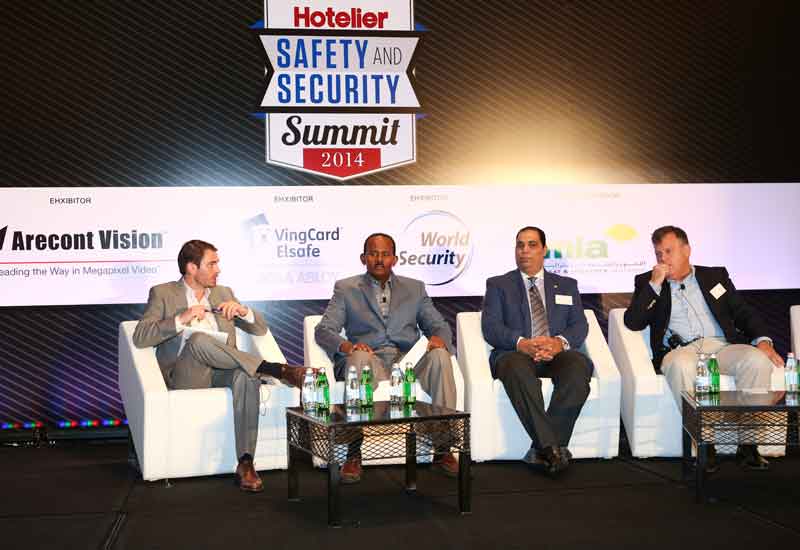Hotel heads of security have called for more collaboration between civil defence authorities and hotels.
Speaking at the Hotelier Middle East Safety & Security Summit yesterday, Hilton Worldwide MEA security director Mohamed Suliman stressed on the importance of collaboration, saying: “Today, a security officer is equivalent to a police officer so they need a lot of information and we need to supply them with this information so they can do their daily duties and make sure that our guests are taken care of. It should be a two-way street.
"We represent these agencies, we represent their views, their regulations, and policies, but we need to understand them more. We need to have more information from them.”
Suliman recommended regular meetings with authorities to stay up to date on crimes and issues affecting the local community.
"I would love to see more interaction. Maybe a monthly meeting between professionals, security directors of hotels, and each department; for example, every month the police department can give us statistics about crimes. We need to know what is going on in our community so we can be their eyes and ears.”
Jumeirah Group director of health safety & environment Craig Cunningham agreed with Suliman on the importance of regular meetings with authorities.
“I think some of the areas that we could perhaps improve on is understanding that emergency services really have two roles to play – one is enforcement, and one is more reactive, where if there is an incident, the police and emergency services respond to that, and take over ownership and control of the investigation," he said.
"And perhaps if we build a little more on the relationships other than the reactive incidents because the authorities have a great role to play in communicating with us what’s going on in the market, we can learn and improve."

| Advertisement |
Cunningham suggested monthly informal meetings or ‘drop-in’ centres for authorities and hotel management to meet and discuss any issues that arise.
“We employ and have professionals in our organisation that can support the emergency services, and I'm sure that the emergency services can work closely with us to advise us on the training that fire inspectors and civil defence inspectors get and how we can assist them. And I really like the idea of the authorities having drop-in centres, perhaps a day when our management can drop in, speak to the inspectors on a very unofficial basis, where we can work together,” he explained.
Cunningham also called for more clarity on legislative changes that are implemented by the police and civil defence.
“In terms of legislative approach and changes, I think it needs to be communicated by the authorities why the changes were made and perhaps give us a little bit more notice because some of these changes that may come in, in terms of training requirements or facilities or new equipment that we need to bring in to comply with the codes, need some time. So we could do with more understanding on why these changes are being made and having them communicated to us a little bit better.”
The Hotelier Middle East Safety and Security Summit was held on June 17 at The Ritz-Carlton DIFC, and was sponsored by Arecont Vision, VingCard Elsafe, World Security and Meat & Livestock Australia.









 Search our database of more than 2,700 industry companies
Search our database of more than 2,700 industry companies









